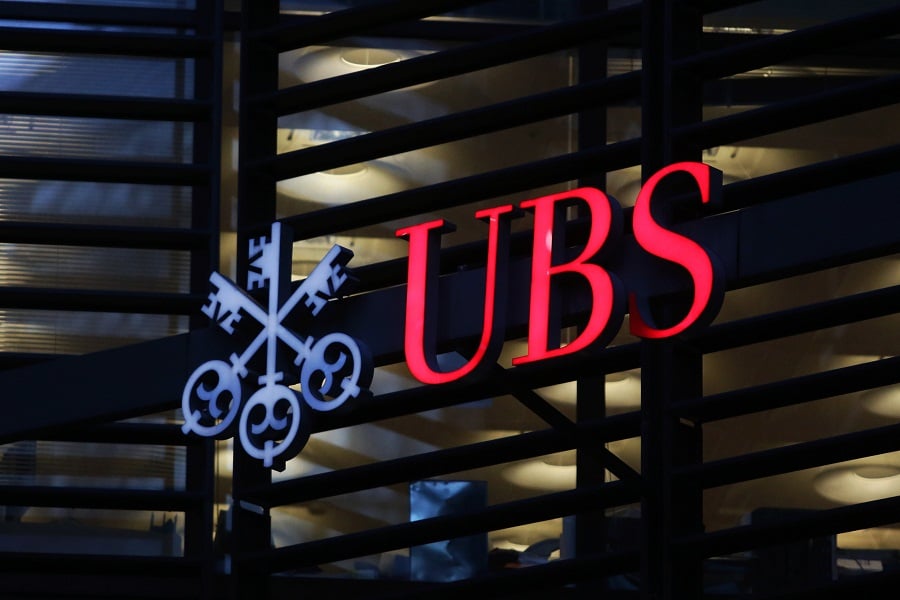The Wall Street firm will emphasize retention over costly recruitment packages.
UBS' shift to focus efforts on retention of top-producing advisers and cut back on recruitment likely won't be a strategy adopted by other wirehouses any time soon, but the move could signal a broader trend of efficiency-hunting in the face of pricing and cost pressures, analysts said.
“I do think this will be firm-specific,” said Bill Butterfield, a senior analyst in Aite Group's wealth management practice. “It really depends on the dynamics of each firm's adviser force and how they're segmented in terms of productivity.”
UBS Wealth Management Americas, the Swiss bank's U.S. wealth management arm, announced Wednesday a new operating model meant to drive organic growth “through an increased focus on adviser retention,” according to an internal memo from UBS Americas president Tom Naratil to employees.
The firm launched a new adviser compensation plan that boosts payouts for advisers with the largest books of business and incentives for advisers to form teams. Further, UBS is reducing adviser recruiting by 40%. The adviser compensation plan will be effective January 1, 2017.
“We've clearly said we're stepping back from the recruiting table,” Mr. Naratil told InvestmentNews. He frames it as a shifting of resources, taking money that would otherwise be spent on recruiting and spending it on current advisers.
The environment of swelling regulatory costs for brokerage firms and pricing pressures due partly to competition from low-cost robo-advisory platforms is most likely at play here, according to Mr. Butterfield.
“The headwinds of the industry are coming from both directions in terms of increasing costs for firms on the compliance side and potentially a squeeze on their profitability,” he said. “In the future, I wouldn't be surprised to see an environment where there's a little more hesitation to give out these big [recruitment] packages.”
Mr. Naratil feels the focus on retention over recruiting is better for the firm long-term.
“Recruiting is more expensive than retaining existing advisers,” Mr. Naratil said. “The whole process from someone thinking about leaving to getting someone in, is a good 18-month drag on productivity. You get rid of that whole sort of drag period if you keep an adviser in their seat.”
Essentially, UBS is “trying to maintain the status quo” by increasing compensation packages for its top advisers, hoping those advisers will stay and it won't have to recruit as much to maintain a consistent adviser headcount, said Howard Diamond, managing director and general counsel at recruiting firm Diamond Consultants Inc.
UBS had 7,145 advisers as of the first quarter. In comparison, the other wirehouses — Wells Fargo, Morgan Stanley and Bank of America — have brokerage forces of more than 14,000.
The firm's target adviser count is between 6,500 and 7,000. UBS was able to pick up around 100 advisers from Credit Suisse Group AG when the latter firm decided to exit its U.S. private banking business last year, Mr. Naratil said.
Boosting compensation to retain advisers “sounds great on paper, but in practicality it won't work, I don't think,” Mr. Diamond said. “Money isn't the only thing that keeps advisers glued to a firm.”
Echoing that thought, Mr. Butterfield said retention is “as much about the culture and support that's offered” internally to advisers.
“At the end of the day, these advisers view themselves with an entrepreneurial lens, and they want to be supported in what they feel is their own small business,” Mr. Butterfield said.
Mr. Naratil said the firm's restructuring involved more than just compensation, but also changes aimed at firm culture — reducing management layers in the field, for example.
UBS is aiming to simplify its adviser compensation plan as part of the change, whittling the plan down from around 30 pages to eight.
“I think simplification of how advisers get paid is long overdue and a huge plus,” said recruiter Danny Sarch, founder and owner of Leitner Sarch Consultants.
It's hard to see how simplification isn't a good thing from an adviser's standpoint, Mr. Sarch said. “Advisers have said to me, 'When a plan is 30 pages long, the first three are how I get paid, and the last 27 are how they're going to take it away," he said.
Compensation increases are for those generating more than $1 million in revenue. Specifically, UBS is increasing its highest cash payouts on the compensation grid to 50% cash. It's also reducing the variables associated with payouts in its deferred compensation plan, from five to two: new business volume and tenure with the firm.
Further, there's a focus on teaming as well. Today, five $1 million producers get paid with their individual assets, rather than the aggregate team's $5 million. The new package would pay advisers according to a $5 million figure.
The new compensation structure helps smaller advisers as well — ticket charges will no longer exist, and small account fees, credit card fees and IRA fees will count toward gross revenue whereas they don't today.







